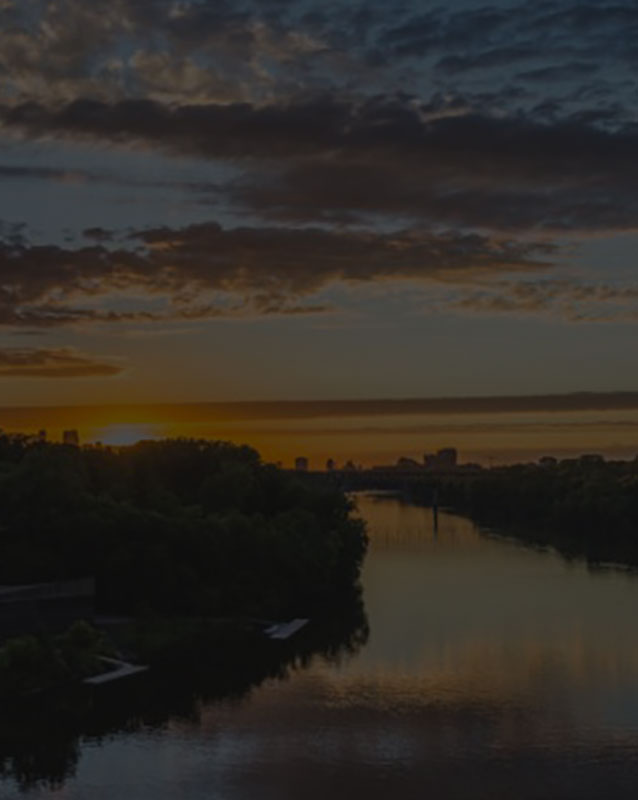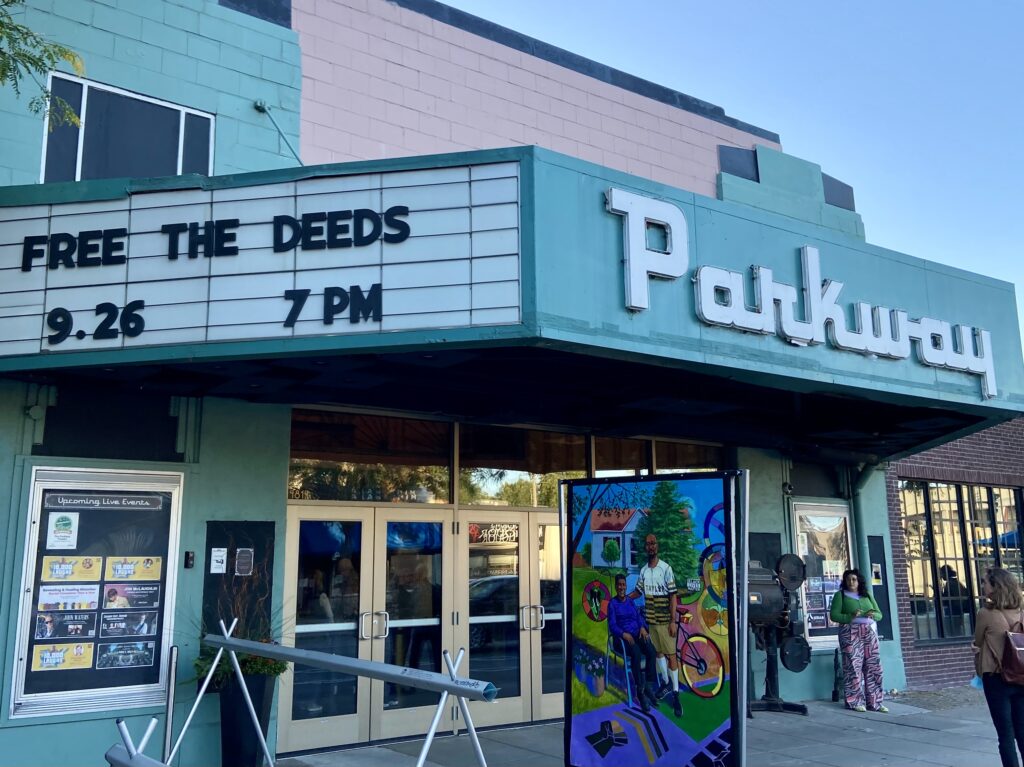News
Free the Deeds and Working Toward Repair
This article was original published in the Longfellow Nokomis Messenger
It’s a 60 degree day in March, and I’ve just returned from a walk along West River Parkway. The signs of spring have begun to awaken along the path – budding flowers and grasses, leaves returning to barren branches. As a newer resident to the neighborhood, my regular walks along the river have become an enriching ritual, but there is an ugly history to this charming stretch of scenery.
Minneapolis has one of the largest gaps between Black and non-Black homeownership rates in the country. The effects of systemic housing discrimination like redlining and racial covenants still permeate our housing landscape today. Longfellow Community Council took on the Free the Deeds project over a year ago in an effort to right some of the wrongs of the past.
The Greater Longfellow neighborhood has one of the largest rates of racial covenants in the city, and it’s not just the housing along the river. These covenants are scattered throughout our neighborhood and our city. Racial covenants are clauses that were inserted into property deeds that were made to prevent people of color from buying or occupying the land that the deed covers.
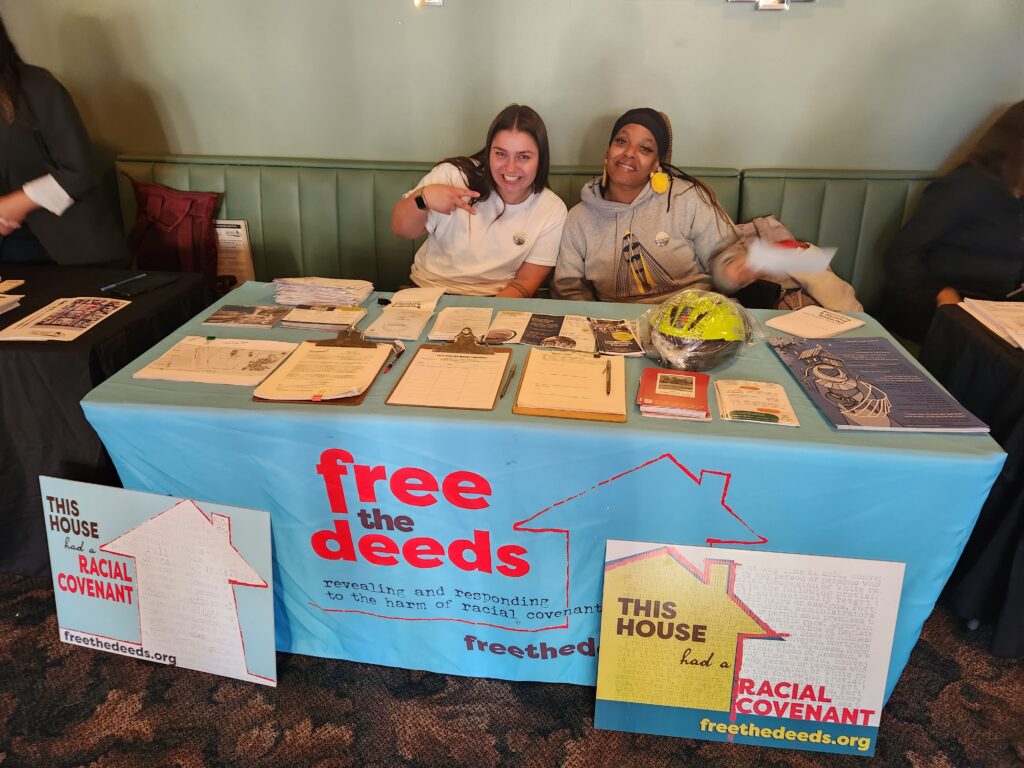
Longfellow resident, Selam, bought her house in 2021. As she would walk her dog around the neighborhood, she would see signs saying ‘this house has a racial covenant.’ The signs brought questions, and when she read an article about Mapping Prejudice and the work they did mapping these covenants around the county, she looked up her property.
The language of these clauses vary. Some covenants list out specific races, while others use more general language like ‘persons not of Caucasian race’ or restrict only Black people. When Melissa discovered she had a racial covenant on her property, she went to find it in her deed.
“It was hard to see [the racial covenant] in print, even knowing there was one on our house and knowing that these were such a prominent tool for segregation here,” Melissa said. “It’s so yucky to have the link to racism. It’s so blatant and hard to ignore and we just have to sit with the yuckiness of it.”
Both Selam and Melissa went through the process to discharge these covenants with the City of Minneapolis’ Just Deeds program. This free legal service helps property owners through the process of discharging this language from their deeds.
“The process was super straightforward so that was great,” Selam said. “The language had specifically written about an African American and a Black person owning the house, and as a Black person residing in that house I felt very strongly about removing it.”
Melissa too said the process to discharge the racial covenant was simple. While it took a couple of months, most appointments could be done virtually and once the process started, it moved quickly.
And while racial covenants haven’t been enforceable since 1953, when they were banned by the State Legislature, removing them still matters. They represent the damaging injustices of the past, and discharging them is an act of repair.
“[Discharging the covenants] is symbolic but symbols matter,” Melissa said.
“Symbolically, I think that covenant removal and street renaming are trying to do the same thing; while the acts by themselves they may not remedy the racial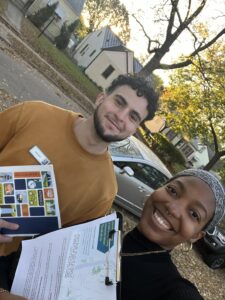 homeownership gap or put food on the table for families in a material way, metaphorically they say that we don’t tolerate bigotry in this community, that everyone is welcome and belongs here, and they we collectively do not worship city “founders” like Edmund any more,” Free the Deeds Volunteer Jordan said.
homeownership gap or put food on the table for families in a material way, metaphorically they say that we don’t tolerate bigotry in this community, that everyone is welcome and belongs here, and they we collectively do not worship city “founders” like Edmund any more,” Free the Deeds Volunteer Jordan said.
“Symbolic steps like these are crucial political education opportunities and build local support for more substantive, material change at the neighborhood level, and I think that’s the real benefit of the work, getting community members to see the connections across different kinds of issues that have at their core the same or similar causes and effects. ”
When LCC started the work of Free the Deeds in late 2022, there were 1,111 racial covenants in the Greater Longfellow neighborhood. Through our efforts of door knocking, hosting events, and tabling at the Farmers Market and more, we’ve been able to discharge over 200 covenants throughout the community.
“Free the Deeds offers a tangible way of promoting racial justice where I live,” said Jesse, another Free the Deeds volunteer. “The spread of covenants is a story of how systems shape the places we live in. I think most people agree that where you live has to do with your health, how you raise your kids, when you can retire, who will influence you. Covenants changed these fundamental things. As a white homeowner who thinks about the harm racism may do in their kid’s generation, I have an obligation to act.”
Throughout the month of April, LCC is going to homes that have the language of racial covenants attached to their deeds and helping property owners start the process to discharge that language.
“Our individual deed might not have an effect on someone else,“ Melissa said. “ But if we can remove all of them or most of them, that makes a huge statement. All of us together, the more that are removed the bigger the symbol and that matters.”
That’s the ultimate aim of Free the Deeds. Removing hundreds of covenants sends a message about what kind of neighborhood we are. We want to be a community that is welcoming to everyone, that values equity and justice, and one that takes action.
“A lot of work has already been put in for Free the Deeds to work: artmaking, storytelling, research, scraping all the addresses together. It is a cumulative thing. My part is going out to encourage people to think about how they can play a role. It’s not abstract. It’s personal, small steps, and you can do a little or a lot,” Jesse said.
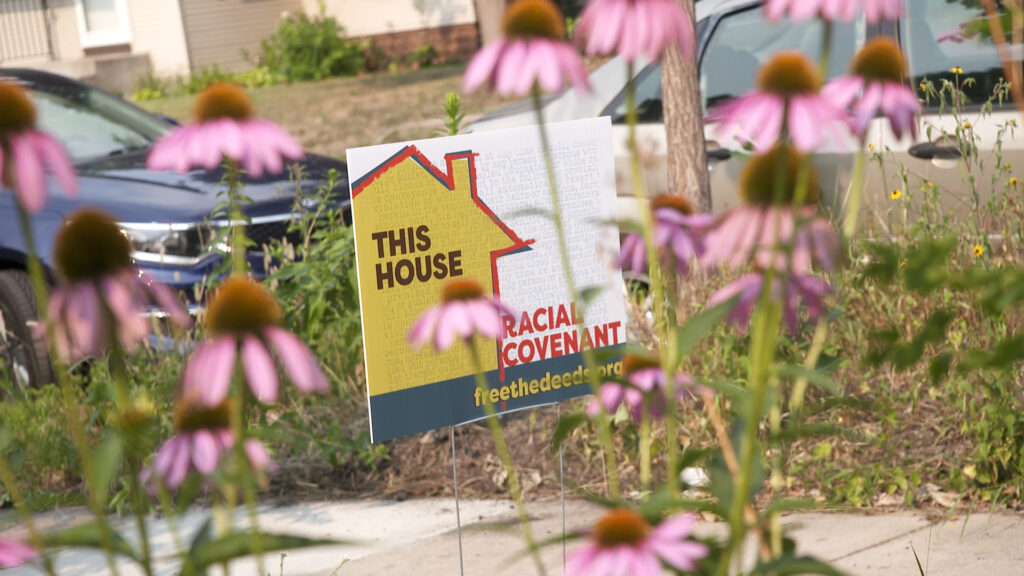
Some of you might have gotten a postcard in the mail from us last year if you had a racial covenant on your deed. Some of you might have seen one of the Free the Deeds lawn signs around the neighborhood. Some of you might be learning about this for the first time.
If you think your house might have a racial covenant on it, you can look it up on the Free the Deeds website, freethedeeds.org under the “Participate” section or you can contact us and we’ll help you look it up.
“Volunteering for FTD is simple and it links to so many other issues around us,” Jesse said. “It helps me to think about my own accountability for change.”
If you want to volunteer with our door knocking campaign, please send us an email at ben@longfellow.org or sign up on our website. We will be door knocking all April, talking with homeowners and connecting them to Just Deeds. It’s also a great way to get to know your neighbors and improve your community, one deed at a time.
If you’re interested in taking steps towards reparations with the City of Lakes Community Land Trust African American Land Trust. You can donate here.
